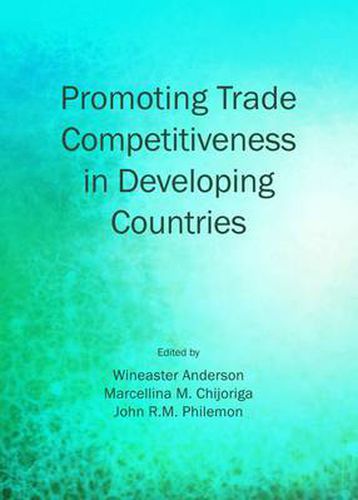Readings Newsletter
Become a Readings Member to make your shopping experience even easier.
Sign in or sign up for free!
You’re not far away from qualifying for FREE standard shipping within Australia
You’ve qualified for FREE standard shipping within Australia
The cart is loading…






Globalization has had far-reaching consequences to both developed and developing economies, and will inevitably have potentially greater roles and impacts in the future. Developing countries stand to lose or gain from globalization, depending on how they marshal resources and manage the dynamics of globalization to their advantage. Experience shows that only a few developing countries have managed to take advantage of the opportunities offered by globalization or mitigate its negative and far-reaching consequences. Most of them are still mired in the economic doldrums due to the lack of a proper understanding of the factors at play and management incapacity.In this book, various insights which critically address globalization and development issues have been thoughtfully put together in order to provoke debates and lead to solutions that help improve the lot of developing countries. The book is the results of the initiative by University of Dar es Salaam Business School, which, in 2011, brought together various stakeholders to an International Conference on Globalization and Development with the theme Promoting Trade Competitiveness in Developing Countries . Thematic areas including regional integration, business regulations, Chinese investments in Africa, globalization, the Africa Growth Opportunity Act, foreign direct investments, and natural resources development were calculatedly selected on account of being topical and relevant in the context of Africa.The book will be valuable for academics, researchers, students and practitioners working in the fields of international business, natural resource management and foreign direct investments not only in Africa, but also in other developing countries. The topics and synthesis dealt with in this book will also be handy for practitioners working in international development agencies, public and private sectors, government ministries, departments and agencies.
$9.00 standard shipping within Australia
FREE standard shipping within Australia for orders over $100.00
Express & International shipping calculated at checkout
Globalization has had far-reaching consequences to both developed and developing economies, and will inevitably have potentially greater roles and impacts in the future. Developing countries stand to lose or gain from globalization, depending on how they marshal resources and manage the dynamics of globalization to their advantage. Experience shows that only a few developing countries have managed to take advantage of the opportunities offered by globalization or mitigate its negative and far-reaching consequences. Most of them are still mired in the economic doldrums due to the lack of a proper understanding of the factors at play and management incapacity.In this book, various insights which critically address globalization and development issues have been thoughtfully put together in order to provoke debates and lead to solutions that help improve the lot of developing countries. The book is the results of the initiative by University of Dar es Salaam Business School, which, in 2011, brought together various stakeholders to an International Conference on Globalization and Development with the theme Promoting Trade Competitiveness in Developing Countries . Thematic areas including regional integration, business regulations, Chinese investments in Africa, globalization, the Africa Growth Opportunity Act, foreign direct investments, and natural resources development were calculatedly selected on account of being topical and relevant in the context of Africa.The book will be valuable for academics, researchers, students and practitioners working in the fields of international business, natural resource management and foreign direct investments not only in Africa, but also in other developing countries. The topics and synthesis dealt with in this book will also be handy for practitioners working in international development agencies, public and private sectors, government ministries, departments and agencies.